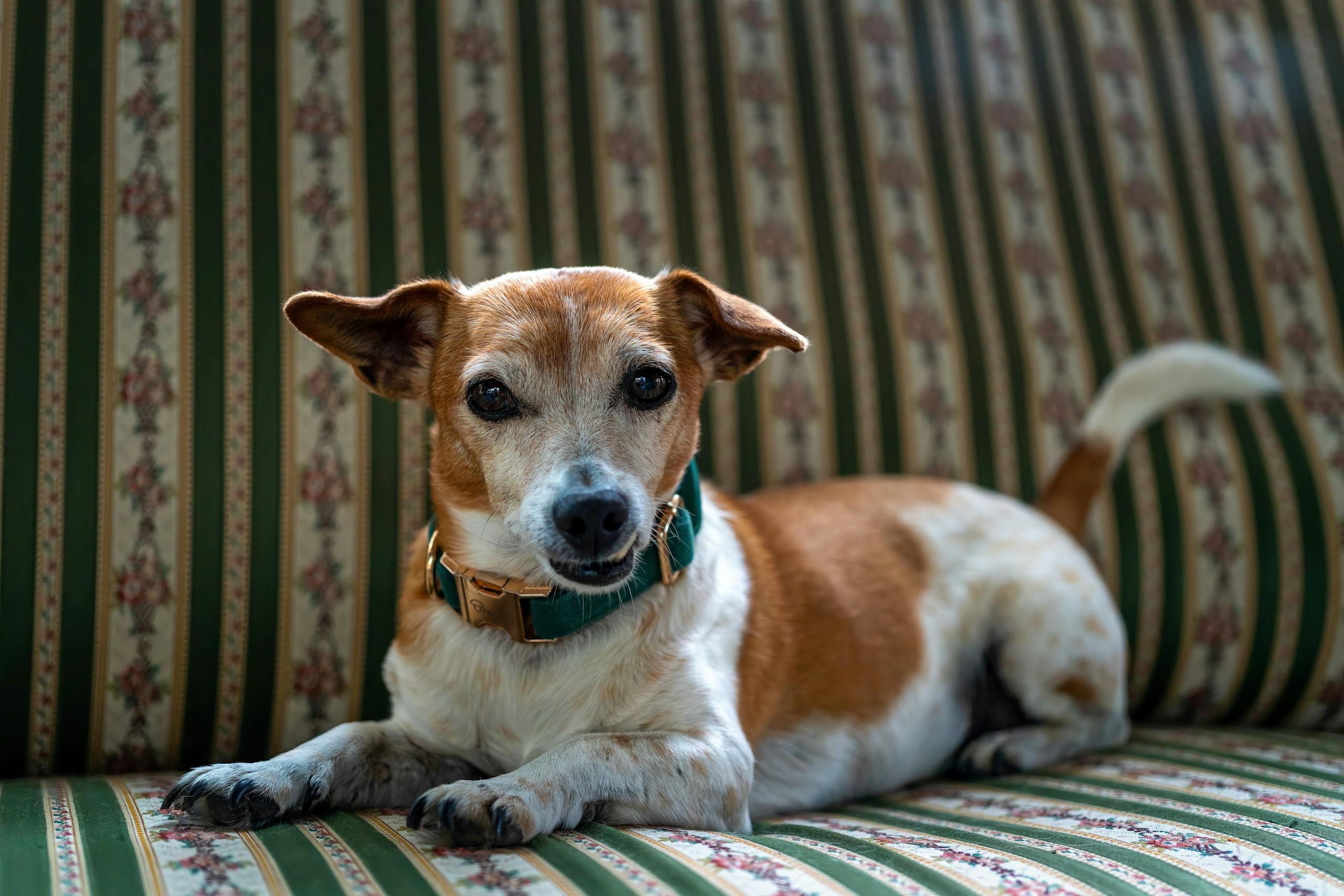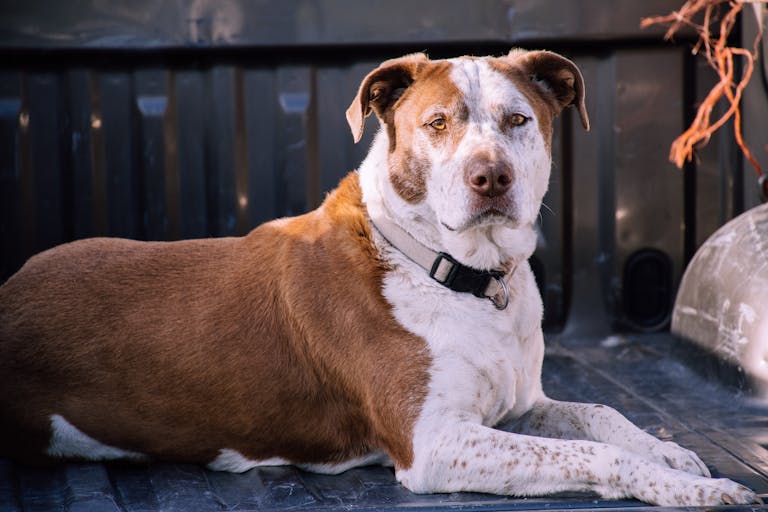Are Jack Russell Terriers Hypoallergenic? The Truth About Allergies
If you’ve ever found yourself sneezing uncontrollably after cuddling a dog, you’ve probably wondered whether certain breeds are safer for allergy sufferers. Jack Russell Terriers, with their boundless energy and charming personalities, often make people ask: Are Jack Russell Terriers hypoallergenic? Let’s break down the science, the myths, and the reality of living with this lively terrier breed.
Table of Contents
Are Jack Russell Terriers Hypoallergenic? Summary Table
| Section | Key Points | Why It Matters for Allergy Sufferers |
|---|---|---|
| What Makes a Dog Hypoallergenic? | No dog is truly hypoallergenic; some breeds produce fewer allergens. | Helps set realistic expectations. |
| Understanding Hypoallergenic Dog Breeds | Breeds like Poodles, Bichons, and Portuguese Water Dogs shed less and trap dander. | Guides choices toward less allergenic dogs. |
| How Allergens Affect Allergy Sufferers | Allergens come from dander, saliva, and urine; stick to hair and furniture. | Explains why symptoms persist even with cleaning. |
| Are Jack Russell Terriers Considered Hypoallergenic? | Russell Terriers are not hypoallergenic; they shed moderately and have a double coat. | Directly answers the main question. |
| Do Jack Russell Terriers Shed? | Yes — year-round, with seasonal increases. | Shedding spreads allergens in the home. |
| Coat Types | Smooth, broken, rough — all shed and produce dander. | No coat type in this breed is allergy-safe. |
| Managing Allergies with a Jack Russell | Grooming, brushing, bathing, and home cleaning help minimize allergens. | Offers practical solutions for pet parents. |
| Air Purifiers & Allergen Control | HEPA filters help reduce airborne dander. | A tech solution to improve living environment. |
| Common Allergy Symptoms | Sneezing, watery eyes, congestion, severe breathing issues. | Helps identify if your reactions are dog-related. |
| Alternatives for Allergy Sufferers | Hypoallergenic dog breeds (Poodle, Bichon Frises, Bedlington Terrier) or mixes like Jackapoo. | Provides safer dog ownership options. |
What Makes a Dog Hypoallergenic?
The term hypoallergenic dog is a bit misleading. No dog is truly hypoallergenic. Instead, some breeds produce fewer allergens (proteins found in dander, saliva, and urine) and are therefore less likely to trigger allergies. According to the American Kennel Club (AKC), breeds like the Poodle or Bichon Frise are often labeled hypoallergenic because they shed very little and have a coat that traps dander.
Understanding Hypoallergenic Dog Breeds
A hypoallergenic dog breed doesn’t eliminate allergens — it simply reduces exposure. For example, a Portuguese Water Dog or a Bedlington Terrier may be better choices for people with mild allergies compared to heavy shedders.
But here’s the thing: allergen levels vary not just by breed, but also by individual dog. Two Jack Russells may affect people differently, depending on how much dander and saliva proteins they produce.
How Allergens Affect Allergy Sufferers
Dog allergens cling to dog hair, loose fur, bedding, carpets, and even clothing. For sensitive individuals, exposure can trigger allergic reactions such as sneezing, watery eyes, or congestion. In more severe allergies, symptoms may escalate to asthma-like breathing difficulties. The culprit? Microscopic proteins in dog dander and saliva that the immune system mistakes as harmful invaders.
What Is Considered a Hypoallergenic Dog?
A dog is considered hypoallergenic when it:
- Sheds minimally
- Has a hypoallergenic coat that traps dander
- Requires regular grooming and brushing to control allergens
- Produces fewer proteins that trigger allergic reactions in sensitive people
This is why terriers are popular among dog lovers, but not all terriers fall into the hypoallergenic category.
Are Jack Russell Terriers Hypoallergenic?
Here’s the truth: Russell Terriers are not hypoallergenic. While they’re small and adorable, they shed moderately and have a double coat that produces dander. In fact, Jack Russell Terriers are not considered hypoallergenic by veterinarians or allergy experts.

Do Jack Russell Terriers Shed?
Yes — and more than you might expect from a small dog breed. Jack Russells shed year-round, though shedding may increase seasonally. Because they have a double coat, their fur can spread allergens around your home, which may worsen allergies in individuals sensitive to pet dander.
Examining the Jack Russell Terrier’s Coat Type
The Jack Russell breed comes with three coat types: smooth, broken, and rough. Regardless of coat type, all Jack Russells shed. The difference is mostly in texture — not allergen production. That means whether your Jack Russell Terrier’s coat is sleek or wiry, it still won’t be a truly hypoallergenic coat.
What Pet Parents Should Know About Jack Russells
Pet parents drawn to the breed should understand a few key points:
- Energy levels: Jack Russells are working dogs and need daily exercise.
- Shedding: Regular grooming can help reduce shedding, but not eliminate allergens.
- Allergy impact: Living with a Jack Russell Terrier may trigger allergies in individuals with sensitivities.
If you suffer from allergies, living with a Jack Russell requires extra care to manage symptoms.
Managing Allergies with a Jack Russell Terrier
Living with a Jack Russell Terrier may be challenging for people with pet allergies, but it’s not impossible. By taking a few preventive steps, you can help minimize your exposure to allergens.
Tips for Grooming Your Jack Russell Terrier
- Brush regularly: Weekly grooming and brushing helps control loose fur.
- Bathe occasionally: Using hypoallergenic shampoos can help reduce dander.
- Trim nails & clean ears: Basic grooming reduces the spread of allergens in your home.
How to Reduce Allergen Exposure in Your Home
- Wash dog bedding and toys frequently.
- Vacuum carpets and upholstery with a HEPA filter.
- Designate certain areas of the home as dog-free zones.
- Use furniture covers that are easy to wash.
Simple steps like these help reduce allergen buildup and keep your living environment healthier.
Can Air Purifiers Help Allergy Sufferers?
Yes! A high-quality air purifier with a HEPA filter can help reduce airborne dander and dust. Studies suggest that using an air purifier is one of the most effective ways to control allergens indoors (Healthline).
Common Allergy Symptoms in Individuals with Dogs
People who are allergic to dogs may experience:
Symptoms such as sneezing
- Runny nose or congestion
- Itchy, watery eyes
- Skin rashes or hives
- Wheezing or difficulty breathing (for severe allergies)
If these symptoms occur after spending time with a Jack Russell, chances are the dog’s dander is the trigger.
Identifying Symptoms Triggered by Dog Allergens
Not all dog allergies look the same. Some people develop mild irritation, while others suffer from more intense reactions. If you notice symptoms every time you spend time with a Jack Russell, it may be time to consult with an allergist.
Understanding Severe Allergies to Dogs
Severe allergies can be dangerous, especially if they cause asthma-like attacks. If you or a family member experience breathing problems, it’s best to consult with an allergist or healthcare provider.
Choosing the Right Dog for Allergy Sufferers
If you’re allergic to dogs but still want a furry companion, choosing the right hypoallergenic breed matters.
What to Look for in a Hypoallergenic Dog Breed
- Dogs that shed minimally
- Breeds known to be less likely to trigger allergies
- Coats that require regular grooming
- Compatibility with your living environment and lifestyle
Breeds like Bichon Frises, Poodles, and Portuguese Water Dogs are often better options for people with mild allergies.
Alternatives to Jack Russell Terriers for Allergy Sufferers
If you’re considering a terrier but need hypoallergenic qualities, you might explore a terrier mix with a Poodle. A Jackapoo (Jack Russell + Poodle mix) may be less likely to trigger allergies, though results vary depending on genetics.
Are Other Terrier Mixes Better for Allergy Sufferers?
Some terrier mixes — like a Bedlington Terrier or a Poodle mix — have coats that trap dander and shed less. While no dog is allergy-proof, they may be a better choice for allergy sufferers than a pure Jack Russell Terrier.
Are Jack Russell Terriers Hypoallergenic Dogs?
Jack Russell Terriers are not classified as hypoallergenic dogs. While they may produce fewer allergens than some breeds, they still shed and produce dander, which can trigger allergies in sensitive individuals.
How Do Jack Russell Terriers Affect Allergy Sufferers?
For individuals with allergies, Jack Russell Terriers can be a mixed choice. While some may tolerate them better than other breeds, the shedding and dander they produce can still cause allergy symptoms in many cases.
Do Jack Russell Terriers Shed A Lot?
Yes, Jack Russell Terriers do shed. Although they have a short coat, they are known to shed throughout the year, which may pose challenges for dog parents managing allergies.
What Are the Best Dog Foods for Jack Russell Terriers?
Choosing the right dog foods for Jack Russell Terriers is essential for their health. Look for high-quality, balanced diets that can help maintain their overall well-being and reduce any potential allergens.
Can Experienced Dog Owners Manage Allergies With a Jack Russell?
Experienced dog owners may find it easier to manage allergies with a Jack Russell by implementing regular grooming routines and cleaning practices to minimize allergens around the home.
What Are Common Allergy Symptoms in Individuals With Jack Russells?
Common allergy symptoms in individuals with Jack Russells include sneezing, itchy eyes, and skin irritations. It is important for pet parents to monitor these symptoms closely, especially if they have severe allergies.
Is a Jack Russell Terrier a Good Choice for Allergy Sufferers?
While Jack Russell Terriers are small and energetic, they are not the best choice for allergy sufferers due to their shedding and dander. However, some individuals may still find them manageable with proper care and grooming.
How Can I Groom My Jack Russell to Reduce Allergens?
Regular grooming can help minimize allergens produced by your Jack Russell. Bathing them with appropriate dog shampoos and brushing their coat frequently can reduce shedding and dander in your home.
Conclusion: Are Jack Russell Terriers Right for You?
Weighing the Pros and Cons for Allergy Sufferers
Pros: Energetic, loyal, fun-loving, small size.
Cons: Moderate shedding, dander production, potential to trigger allergies.
If you suffer from allergies, living with a Jack Russell Terrier may require significant lifestyle adjustments.
Final Thoughts on Jack Russell Terriers and Allergies
While Jack Russells are wonderful companions, the reality is clear: Russell Terriers are not hypoallergenic. They shed, they produce dander, and they can trigger allergic reactions in sensitive individuals.
That doesn’t mean you can’t enjoy life with one — it just means you’ll need to be proactive about cleaning, grooming, and managing symptoms.
Finding the Best Fit for Your Home and Health
Ultimately, the best dog for you depends on your health, your living environment, and your tolerance for allergens. If you’re allergic to dogs, spending time with a Jack Russell before committing to ownership can help you make an informed decision.







